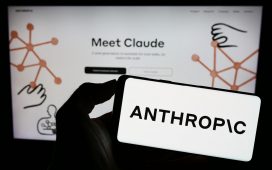Sign up for daily news updates from CleanTechnica on email. Or follow us on Google News!
Corporations need to decarbonize, and they know it. We cannot get global heating under control if corporations large, medium, and small don’t do their part, and the good news is that many of them now recognize this and are on board. However, it’s one thing to say “we should do this and we will do this,” and it’s something very different to actually dig in and decarbonize one’s business. That’s especially true if you go beyond simple, direct greening of one’s operations and focus on decarbonizing one’s supply chain and scope 2 and 3 emissions as well.
In a recent CleanTech Talk podcast, Laura Eve, VP of SaaS Sustainability Solutions for Zeigo, a suite of decarbonization software solutions, talks with CleanTechnica‘s Jo Borras about the corporate decarbonization imperative. It turns out 42% of Fortune 500 companies have set a major climate milestone for 2030, or have achieved one already, and that’s up 11% from last year! Laura Eve helps to explain what decarbonization actually entails, why it is so hard, and how software can help businesses achieve their goals.
Have a listen via the embedded player below, or on your favorite podcasting network. You can also find a few highlights from the discussion in the rest of the article below the Spotify player.
To start with, it’s worth noting that corporate efforts at decarbonization do more than just help save the world from global heating. “While we’re seeing much more in terms of regulatory and compliance requirements, this shouldn’t all be viewed negatively, because, in general, sustainability does offer a whole range of benefits for businesses. This isn’t anything new. We’ve seen where commitment to sustainability goes a long way to enhance a brand’s reputation. It appeals to customers who are more eco-conscious, and it attracts investors who are really seeking to support those companies that are operating sustainably. And, what we also see is purpose-driven companies who have these commitments to sustainability are able to attract top talent. So, this is where employees want to work for organizations that lead with purpose and that want to make a positive impact. So, yes, in a nutshell, decarbonization is not just about being environmentally responsible, but it’s a very powerful business strategy that enables profitability and growth.”
Jo and Laura also get into the topic of risk mitigation, another way in which decarbonization isn’t just an altruistic service but also a prudent and pragmatic business decision. Jo asks how risk mitigation is driving decarbonization. “As the impacts of climate change become more apparent, businesses are faced with increasing risks, and those could be risks related to supply chain disruptions or resource scarcity, or driven by extreme weather events,” Laura notes. She adds that even in the past several years we’ve seen a lot of those. “There’s a stat that I read recently in a CDP report that stocks out — 215 of the largest global companies report almost one trillion US dollars at risk from climate impacts. So it’s a staggering number, really, and many of those impacts are likely to hit within the next 5 years.” Naturally, avoiding risk is critical to companies, especially avoiding unnecessary risks. “In the work that we do, we’ve really found that adopting decarbonization strategies can help those companies get ahead of the risks and mitigate those risks. So, the decarbonization strategies really allow those businesses to think more proactively about how they adapt to climate change to help reduce their exposure to resource price fluctuations and enhance overall resilience. In this way, sustainability becomes a strategic risk management tool that really safeguards that company in its long-term operations and profitability.” Indeed!
And then there’s just the matter of sustainable operating practices simply saving money directly. “In our research, in what we’ve seen first hand, is that energy efficiency measures, electrification, those types of projects — they can reduce operational expenses, sometimes upward of 20–30%. So it’s a very significant savings potential there.” Yes, that’s long been one of the funny matters here. People think of climate action as something that costs a company money, but it often leads to a net savings rather than a net cost.
So, what is Zeigo actually offering here? What the Schneider Electric brand offers is a robust software solution that helps companies carefully track carbon emissions throughout their operations and supply chain and then find ways to decarbonize where possible. “We built software to enable an end-to-end journey for the user, which includes things like emissions calculations and tracking, carbon planning and reduction, education and learning; and then point solutions that really support the implementation of those decarbonization initiatives. And we do it in a unique way. It’s provided under a single ecosystem, and it’s built to be very self-serve in nature, or SaaS.” Learn much more about it in the full podcast discussion, and over on their website.
You can find our CleanTech Talk podcasts on Spotify, Apple Podcasts, Google Podcasts, YouTube, Overcast, Pocket, Podbean,Radio Public, SoundCloud, or Stitcher.
Have a tip for CleanTechnica? Want to advertise? Want to suggest a guest for our CleanTech Talk podcast? Contact us here.
Latest CleanTechnica TV Video
I don’t like paywalls. You don’t like paywalls. Who likes paywalls? Here at CleanTechnica, we implemented a limited paywall for a while, but it always felt wrong — and it was always tough to decide what we should put behind there. In theory, your most exclusive and best content goes behind a paywall. But then fewer people read it!! So, we’ve decided to completely nix paywalls here at CleanTechnica. But…
Thank you!
CleanTechnica uses affiliate links. See our policy here.










